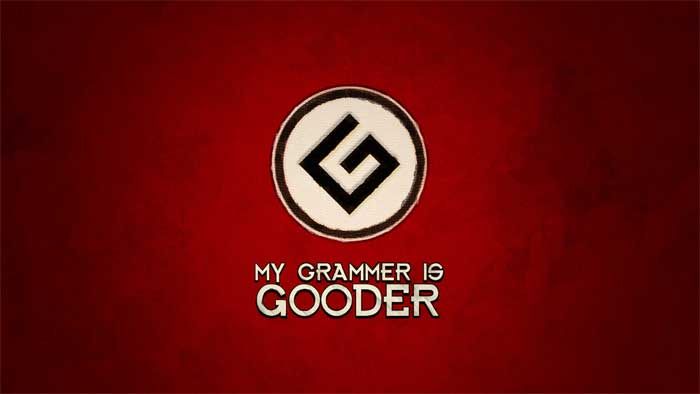The End Of Grammar As We Know It
The End of Grammar
“Is is” is making a comeback of sorts, and Warren Clements of the Globe and Mail is careful to document its use in a recent article (link below).
Grammar! What it is is the bane of the writer’s (and the talker’s) existence.
 To use it correctly or to use it the way you feel like using it is less a question of proper English anymore, but rather a question of who cares anyway.
To use it correctly or to use it the way you feel like using it is less a question of proper English anymore, but rather a question of who cares anyway.
The thing is, we don’t care.
But the corollary to the thing is is that if we don’t care about the grammar, then we also don’t care about the meaning we lose when we lose the grammar.
Might as well lose the spelling while we’re at it.
And dump context, relevance, all initial capitals, and punctuation, and use parts of speech interchangeably (as in verb the nouns and noun the verbs).
Keeping this post short today. I can’t be any cleverer with this stuff. Can’t bring me to mess with our language, except in error.
I’ll leave it to Michelle Obama and others to carry the torch for its is-ing, and I’ll go back to Strunk and White.
Have a good day. Say what you mean and mean what you say.
Main Themes
- Playful use of “is is.” The repetition of “is” highlights how grammar quirks can become normalized, even celebrated, despite seeming awkward.
- Grammar is both a bane and a necessity. The author admits grammar frustrates writers and speakers, yet also acknowledges that abandoning it risks losing meaning.
- Indifference toward rules. The piece suggests that many people don’t care about grammar anymore, which raises the question: if grammar is ignored, does communication itself suffer?
- Slippery slope of neglect. By joking about discarding spelling, punctuation, and even parts of speech, the author warns that language could collapse into chaos if rules are abandoned entirely.
- Respect for tradition. Despite the playful tone, the closing nod to Strunk and White (classic grammar authorities) shows a lingering respect for structure and clarity.
Does it Matter?
- Language evolves: New forms of expression (like “is is”) reflect cultural shifts, but they also challenge traditionalists.
- Balance is key: Total rigidity stifles creativity, while total disregard erodes meaning.
- Humor as critique: The piece uses irony and exaggeration to spark reflection on how much grammar really matters.
Takeaway
The essay isn’t just about grammar—it’s about communication and meaning. If we dismiss grammar entirely, we risk losing the precision that allows us to “say what we mean and mean what we say.” Yet, the playful tone reminds us that language is also alive, flexible, and fun.



